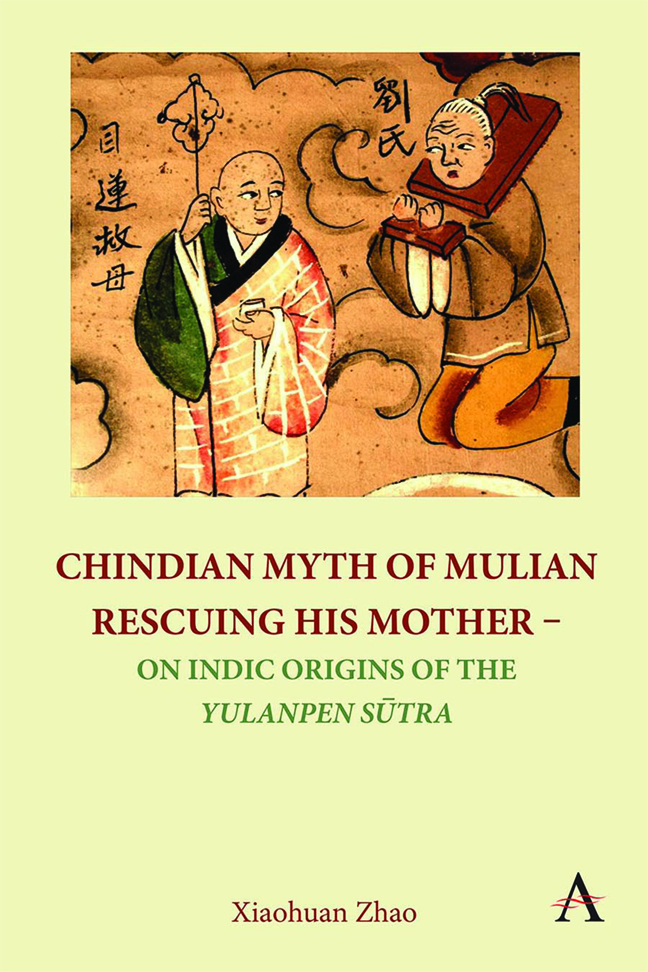1 - Yulanpen Sūtra and Maudgalyāyana
Published online by Cambridge University Press: 02 March 2024
Summary
The Yulanpen Festival, also known as the Middle-Primordial (Zhongyuan) Festival (Zhong yuan jie), the Hungry Ghost Festival (egui jie) or simply as the Ghost Festival (guijie) (Figures 1.1–1.3), has its scriptural origin in the Yulanpen Sūtra Expounded by the Buddha (Fo shuo Yulanpen jing, T16n0685), a Buddhist text in the fangdeng (lit. ‘square and equal’) or vaipūlya (‘[works of ] great extent’) category of the Chinese Buddhist canon.
The Yulanpen Sūtra
This is a fairly short text of approximately 800 Chinese characters (Figure 1.4a–c) and is worth citing here in its entirety because it is crucial to our understanding of this Buddhist scripture as a creative translation from some Indic source(s) and also as the canonical source of the Yulanpen Festival that is still widely celebrated in China and beyond.
Yulanpen Sūtra Expounded by the Buddha Translated into Chinese by Dharmarakṣa (Zhu Fahu), Tripițaka Master from Gandhāra in the Western Jin Dynasty
Thus have I heard, at one time, the Buddha is dwelling in the Garden of the Benefactor of Orphans and the Solitary in the Jetavana Monastery in Śrāvastı̄ when Maudgalyāyana had just obtained the six spiritual penetrations (liutong). He wished to deliver his parents from rebirth into a lower realm to repay their kindness for raising and nurturing him. Thus, he regarded the world with his divine eyes (daoyan) and found that his deceased mother had been reborn into the Preta realm. With nothing to eat or drink, she was but skin and bones.
Feeling deep pity and sadness, Maudgalyāyana filled a bowl with cooked rice and went forward to feed his mother. Having received the bowl, his mother screened it with her left hand while taking some rice with her right hand, but before the food entered her mouth, it turned into burning charcoal that could not be eaten. Maudgalyāyana ana cried out in agony and rushed back to the Buddha to tell him what had happened to his mother.
The Buddha said, ‘Your mother's sins are so grave and deeply rooted that it is beyond your individual power to save her. Although your filial devotion and submission (xiaoshun) and your sound of crying have moved Heaven and Earth, there is nothing that heavenly gods, earthly deities, Māras (xiemo), non-Buddhist monks (waidao), Buddhist monks (daoshi) and the Four Great Heavenly Kings (Si tianwan shen) can do to save her.
- Type
- Chapter
- Information
- Chindian Myth of Mulian Rescuing His MotherOn Indic Origins of the Yulanpen Sūtra, pp. 7 - 16Publisher: Anthem PressPrint publication year: 2023



